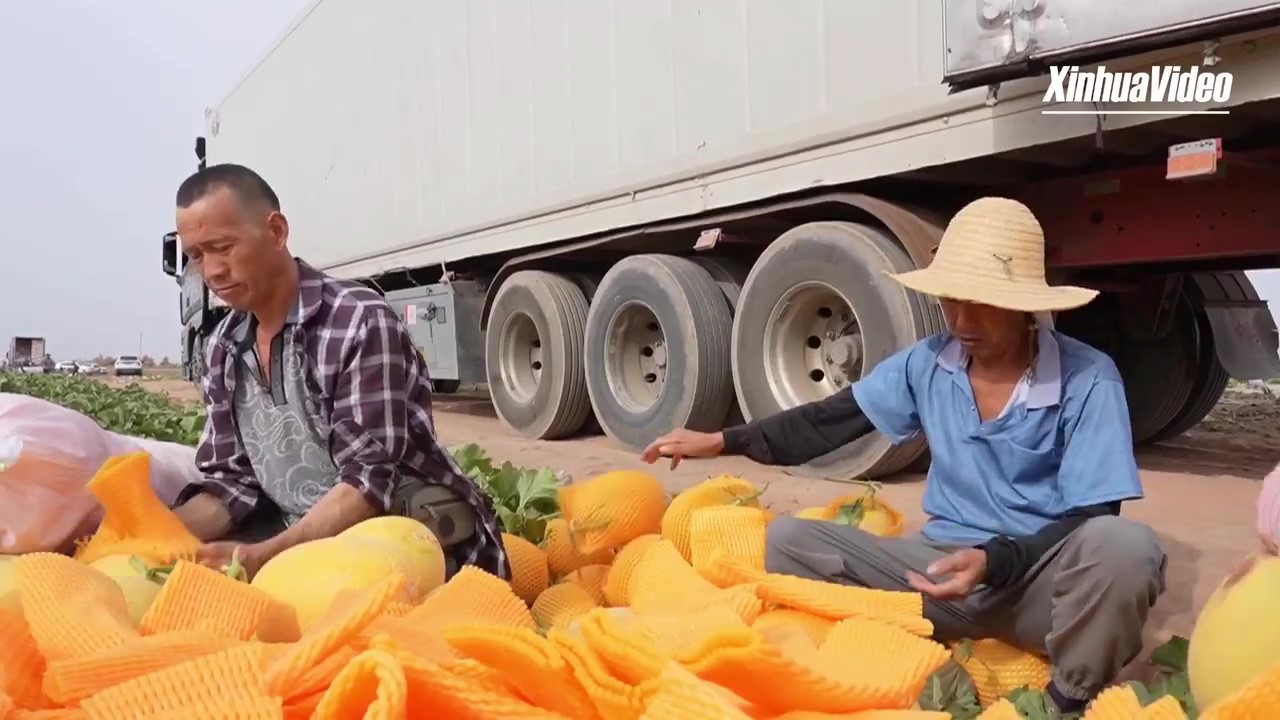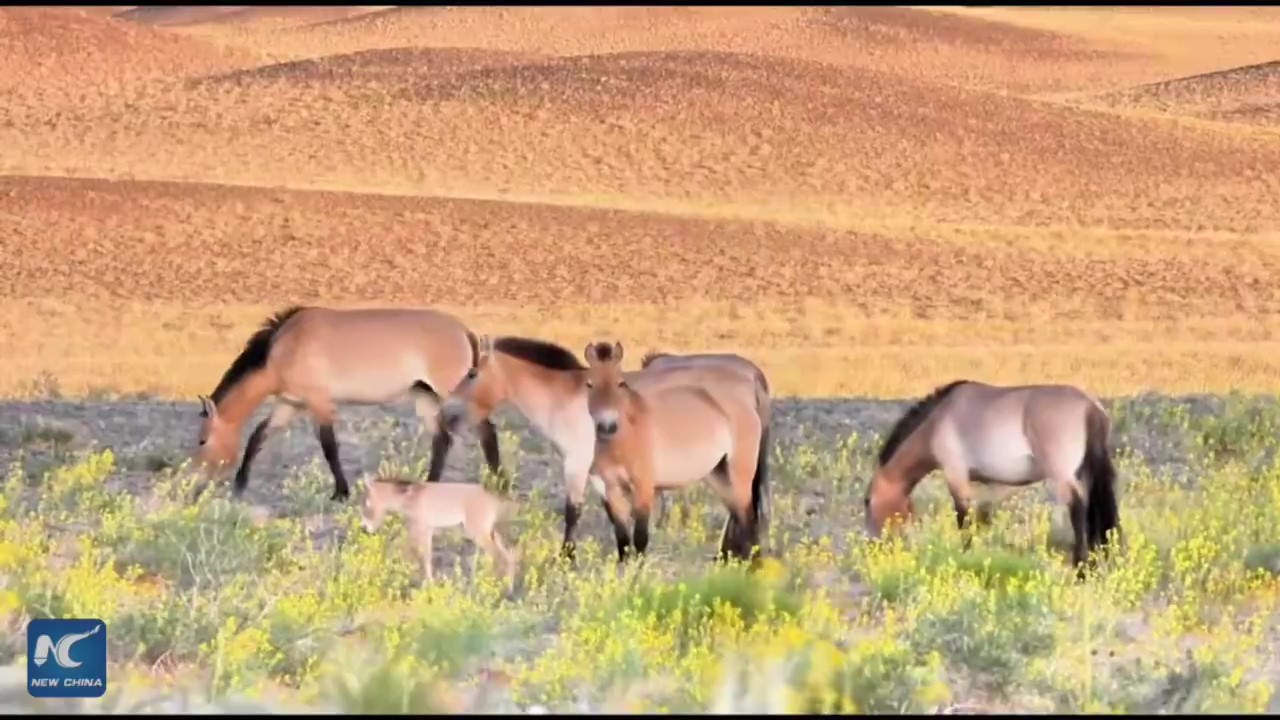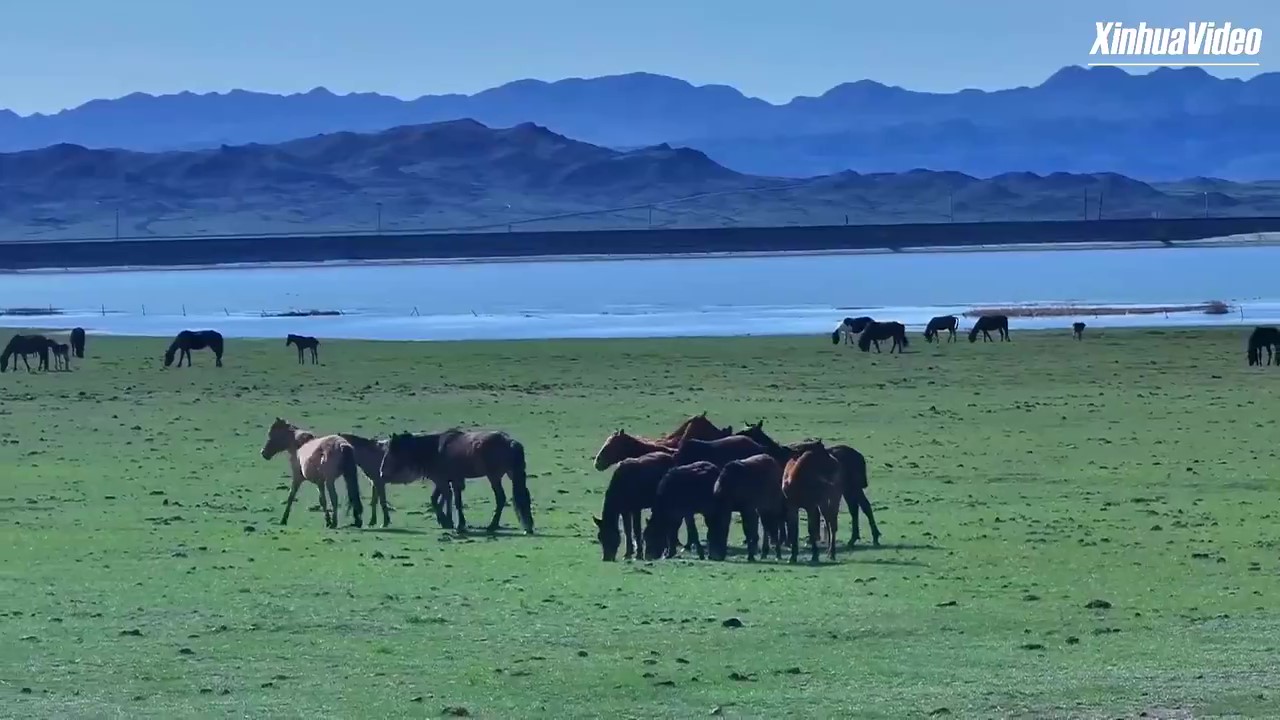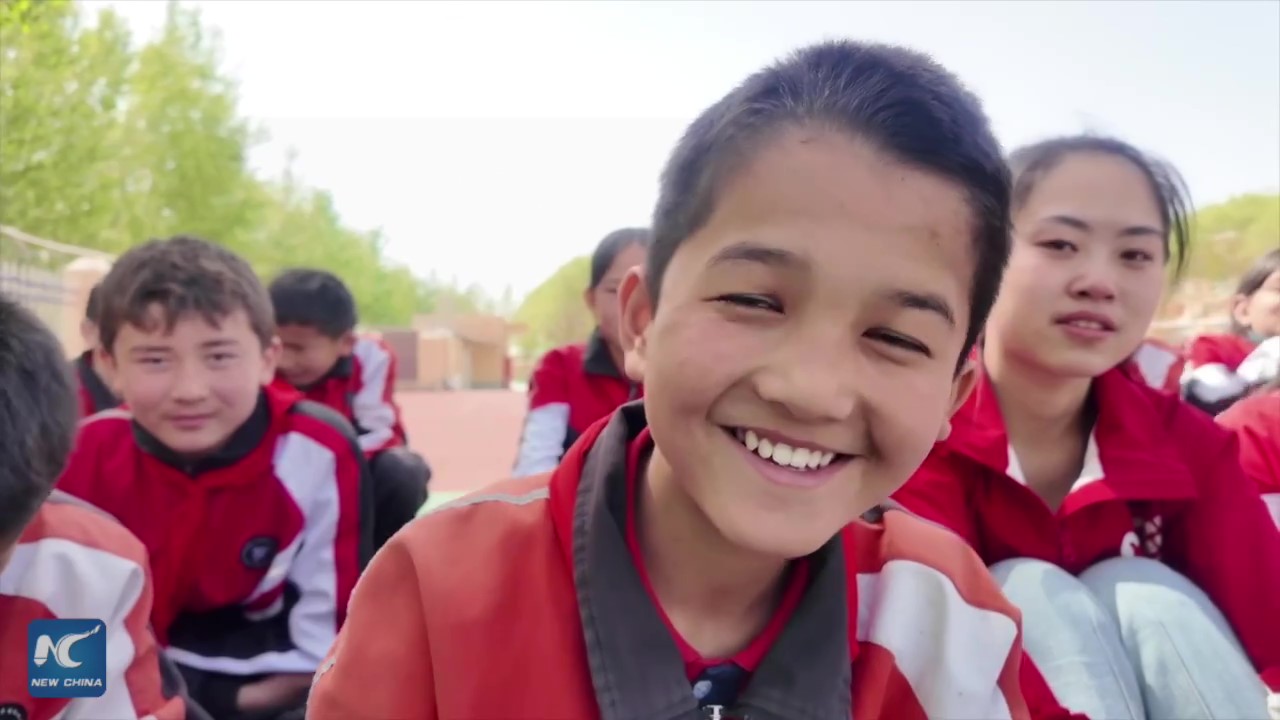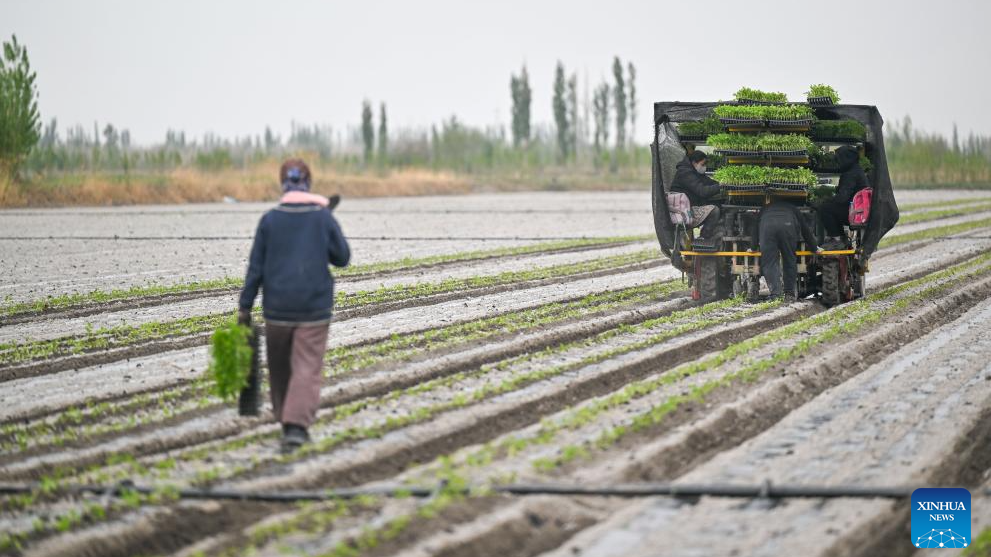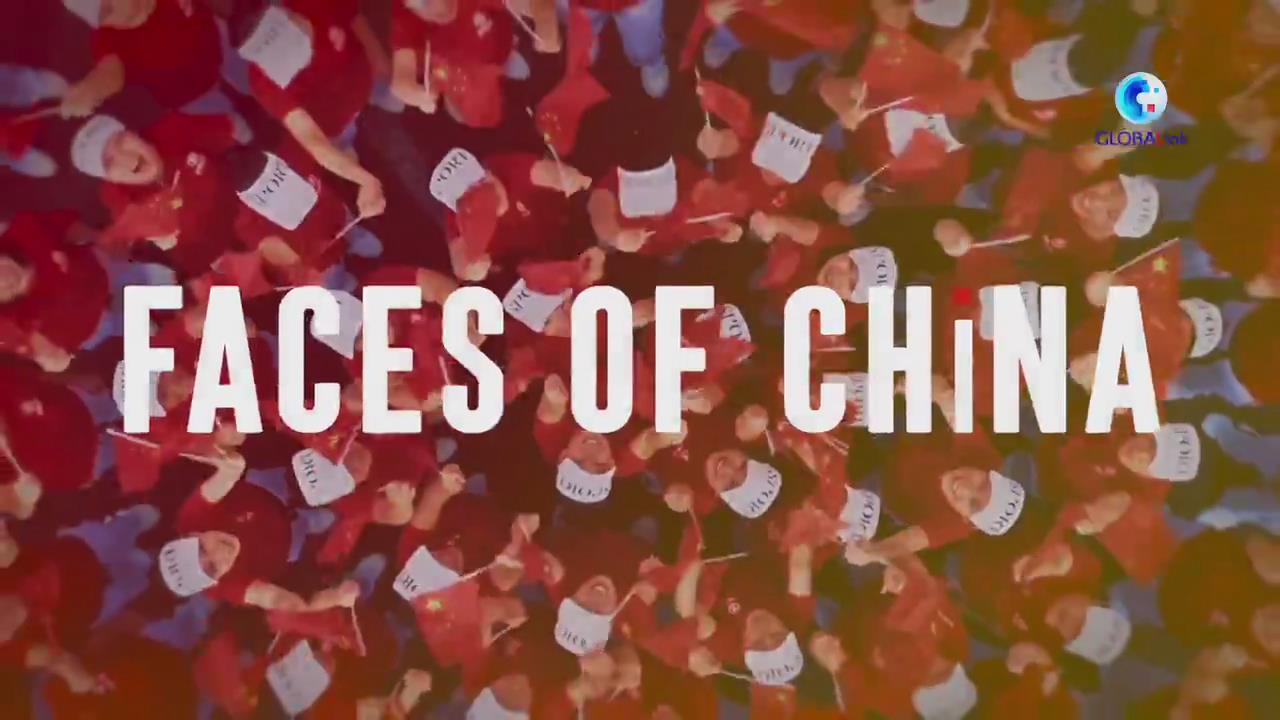As the camera started rolling, Yimla Yarmemet poured steaming milk and coffee into a cup-shaped naan, a traditional staple food, creating a unique "Naanccino" that blends local flavors with global trends, while sitting at a coffee shop in northwest China's Xinjiang Uygur Autonomous Region.
Donning white gloves and a sharp suit, Yimla Yarmemet, with his signature arched eyebrow and charming Xinjiang accent in his video clips, has captivated the internet and become a viral sensation.
His videos not only make it easier for farmers to sell their produce and local specialties but also attract netizens to learn more about his hometown.
After graduating from university in 2019, Yimla Yarmemet tried several jobs in the city of Shenzhen before returning home -- the Xibe Autonomous County of Qapqal -- in 2020 to start an e-commerce business.
"Qapqal's fertile lands produce premium crops, so I was thinking why not use short videos to showcase our agricultural products," he said.
Qapqal means "granary" in the Xibe language. Located in Ili Kazak Autonomous Prefecture, Qapqal is China's only Xibe autonomous county, boasting exceptional agricultural conditions. It is home to "Qapqal Rice," one of the country's Agro-product Geographical Indications, in addition to other farming and herding products.
Yimla Yarmemet's team shot to internet fame last year with a short video introducing fish mint, a leafy green plant known for its distinctive fishy flavor and aroma. In the video, he stood in a greenhouse wearing a suit, held the plant, and took a raw bite before appearing refreshed by the grassy taste.
The video drew an influx of comments from across the country, including questions about where Qapqal is and whether fish mint grows in Xinjiang. Yimla Yarmemet and his team spent up to three hours a day responding to these comments.
"It feels amazing being able to share a real, multi-dimensional and tangible Xinjiang with more people," said Yong Xiaolong, the cameraperson of the team.
Ma Li, the team's director, said many farmers turned to them for help to promote their produce, and the team offered their services free of charge.
"Once, we filmed apples in a township, and a merchant who watched our video ended up ordering the entire orchard's harvest. We were very thrilled," Ma said.
Inspired by the team, many content creators from Xinjiang have begun imitating their style, including a traffic police officer who started producing videos offering driving tips and traffic regulations.
"These short videos in Xinjiang accent reflect a blend of regional culture and short video culture," said Liu Xiaocheng, a professor at Lanzhou University. He believes that using local, down-to-earth, humorous and novel expressions to promote regional characteristics can draw wider attention to ethnic minority border areas.
In 2024, China's Ministry of Commerce issued the "Three-Year Action Plan for Digital Commerce (2024-2026)," highlighting the role of livestreaming and e-commerce in unleashing the consumption potential of rural areas.
According to a report released by Douyin, the Chinese version of TikTok, approximately 1.02 billion videos themed around rural life were uploaded to the platform in 2023, resulting in 4.73 billion orders for agricultural products.
Yimla Yarmemet plans to use livestreaming platforms more extensively to promote local farm products like rice, corn, vegetables and beef jerky.
"We hope our videos can not only help farmers increase income but also showcase the beauty and prosperity of Xinjiang's Qapqal County to the outside world," he said.

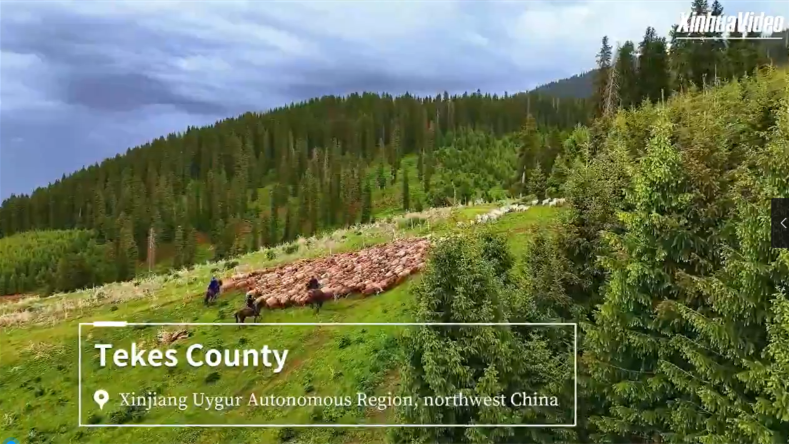
.png)
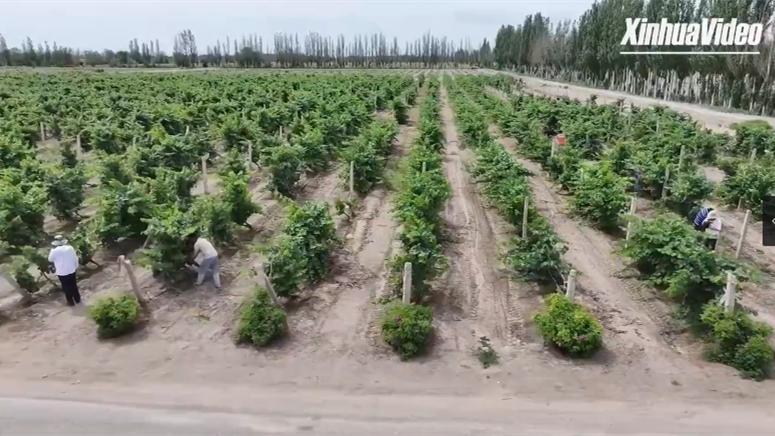
.png)

.png)




